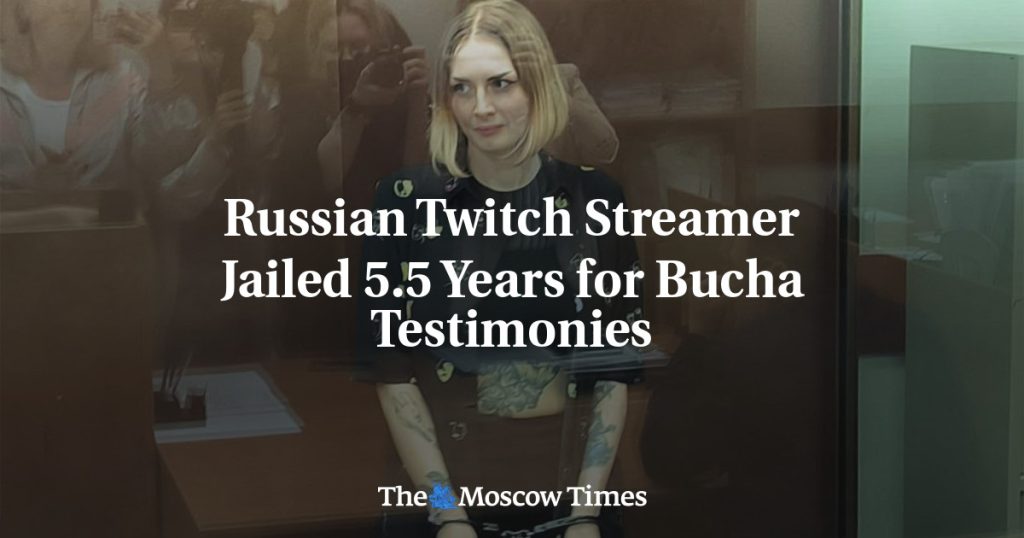A Moscow court has sentenced Twitch streamer Anna Bazhutova to five and a half years in prison for livestreaming witness testimony about alleged Russian atrocities in Bucha, Ukraine. Bazhutova, speaking from the defendant’s box, expressed disbelief and disgust at the ruling. The court found her guilty of spreading “fake” information about the Russian army on her Twitch channel, a decision that Bazhutova’s lawyer plans to appeal. The accusations stem from a live broadcast in June 2023, where Bazhutova shared witness statements from Bucha residents accusing the Russian military of committing a massacre during their retreat in the spring of 2022.
The city of Kyiv has accused the Russian military of carrying out a massacre of civilians in Bucha, while Moscow denies the allegations and claims the killings were staged by the West. The streamer’s live broadcast, which included testimonies from Bucha residents, prompted pro-war Russian bloggers to complain to authorities, leading to a police search of Bazhutova’s home and the confiscation of her electronic devices. Subsequently, her Twitch channel was blocked. The court’s decision to sentence Bazhutova to prison for sharing this information underscores the ongoing tensions and propaganda surrounding the conflict between Russia and Ukraine.
Bazhutova’s case highlights the risks associated with reporting on sensitive topics in an environment where information warfare and propaganda play a significant role. By livestreaming witness testimonies alleging Russian atrocities, Bazhutova found herself targeted by authorities and ultimately sentenced to prison for spreading what the court deemed to be false information. The differing narratives presented by Kyiv and Moscow in regard to the events in Bucha further complicate the situation and contribute to the polarized views surrounding the conflict.
The backlash against Bazhutova’s livestream underscores the challenges faced by individuals speaking out against the official narrative promoted by the Russian government. Despite her claims of wanting to shed light on alleged atrocities, Bazhutova’s actions led to legal repercussions and the loss of her platform on Twitch. The use of social media and online platforms to disseminate information and shape public opinion has become a common tactic in modern conflicts, with individuals like Bazhutova caught in the crossfire between conflicting narratives.
Bazhutova’s lawyer plans to appeal the court’s decision, indicating that the case is far from over and highlighting the potential for further legal battles in the ongoing dispute over what constitutes truthful reporting in the context of the Russian-Ukrainian conflict. The sentencing of Bazhutova to prison serves as a warning to others who may seek to share information that challenges the official narrative, demonstrating the risks associated with speaking out against the authorities in a climate of increasing censorship and crackdowns on dissent. The outcome of this case will likely have broader implications for freedom of speech and the spread of information in the context of the conflict between Russia and Ukraine.


